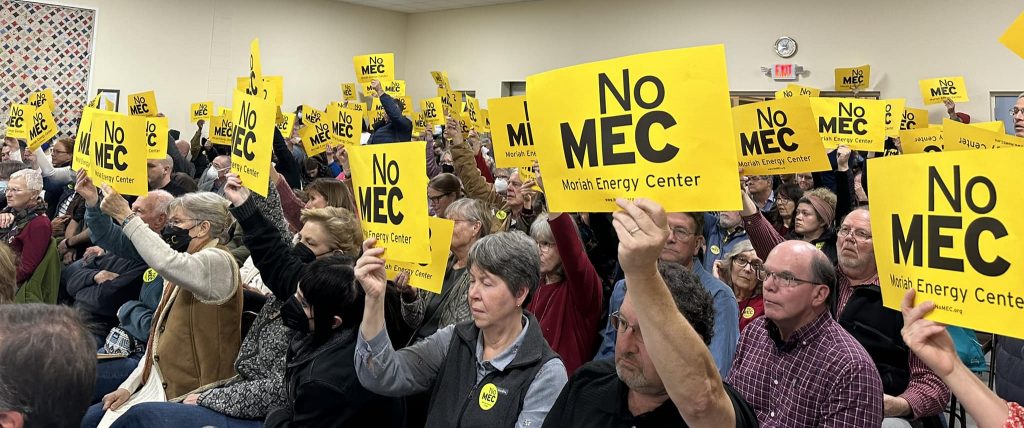Selenium Spillover: Pollutant Poses Growing Risks to Ecosystems and the Coal Industry
Last year, when the bankrupt Patriot Coal Corp. agreed to phase out mountaintop removal coal mining as part of a settlement with environmental groups, it was partially because the company was on the hook for more than $400 million in fines to clean up selenium pollution from several of its surface mines.
Increasingly, selenium is becoming a liability for coal companies in Appalachia. The element occurs naturally in different concentrations around the world and is found in everyday products ranging from anti-dandruff shampoo to vitamin supplements. But when it is exposed through coal mining, combustion and other industrial and agricultural activities, selenium puts aquatic ecosystems, along with birds, mammals and humans, at risk.
Selenium bioaccumulates as it moves up the food chain. People are exposed to toxic levels by eating contaminated fish or drinking from impaired waterways such as West Virginia’s Mud River. A 2003 report described the polluted river as being on “the brink of a major toxic event” due to selenium pollution from Patriot’s Hobet Mining complex, which it has been since.
In the wake of a series of lawsuits against Patriot alleging violations of permitted selenium limits at several surface mines, opponents of mountaintop removal hope the financial liability of selenium pollution will spill over, potentially making mountaintop removal altogether too risky. Supporters of surface mining, however, are keenly aware of the situation, and states where mountaintop removal occurs are taking steps to weaken selenium standards to lessen the risk of lawsuits that could result in devastating fines.
“The bankruptcy of Patriot Coal illustrates the danger of managing selenium compliance in the courtroom rather than in the boardroom,” says Ben Collins, a research and policy campaigner at the environmental advocacy group Rainforest Action Network. A report authored by Collins in February focused on the potential cost to Appalachian coal-mining giant Alpha Natural Resources from lawsuits alleging selenium contamination downstream from the company’s surface mines.
The report states that monitoring at Alpha’s surface mines between 2005 and 2010 identified 989 instances of selenium levels above federal guidelines. While Alpha reports selenium monitoring data to West Virginia environmental regulators, it is not disclosed to investors in the company’s sustainability reporting.
“Alpha can leave its exposure to selenium non-compliance risk to be handled by its lawyers,” Collins says, “but it does so at considerable risk to its investors.”
Selenium pollution is far from an isolated problem. In late March, the largest coal company operating in British Columbia’s Elk Valley announced it will spend $600 million over the next five years to develop a plan to prevent selenium pollution, which it predicts will add $6 per ton of coal mined. Until then, no new mine permits will be approved in the valley.
In Central Appalachia, lawmakers have shown they would rather weaken water quality standards to help put discharges at mountaintop removal mines in compliance.
In February, after a 30-day comment period for its three-year review of water quality standards ended, the Kentucky Division of Water attempted to raise the criteria for selenium toxicity to greater than ten times current standards.
Before a bill to require the West Virginia Department of Environmental Protection to back away from federal standards and develop state specific rules for selenium passed the House of Delegates 99-0, House Judiciary Chairman Tim Miley called the bill “an important one for the coal industry.”
“There is no scientific foundation for this change,” Dan Radmacher of Appalachian Mountain Advocates wrote in the Lexington-Herald. “Only the corrupting influence of a declining industry could lead officials who are supposed to protect the environment and people of Kentucky and West Virginia to protect profits instead.”
Just as opponents of mountaintop removal strive to capitalize on the financial liabilities associated with selenium, the coal industry and its supporters are looking for an escape route. If they succeed, Radmacher warns, sooner or later the public will be forced to pay to clean up the problem.
“Always remember this: If public officials and regulators help the coal industry successfully evade these costs, the liability will almost certainly end up on citizens.”
Related Articles
Latest News

Leave a comment
Your email address will not be published. Required fields are marked *




